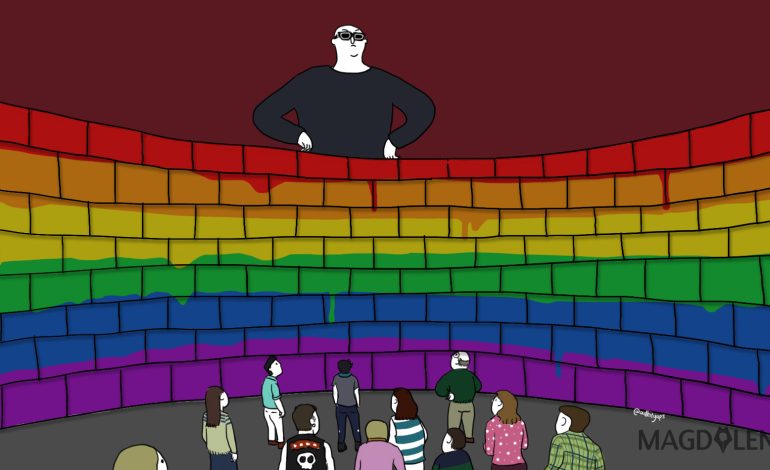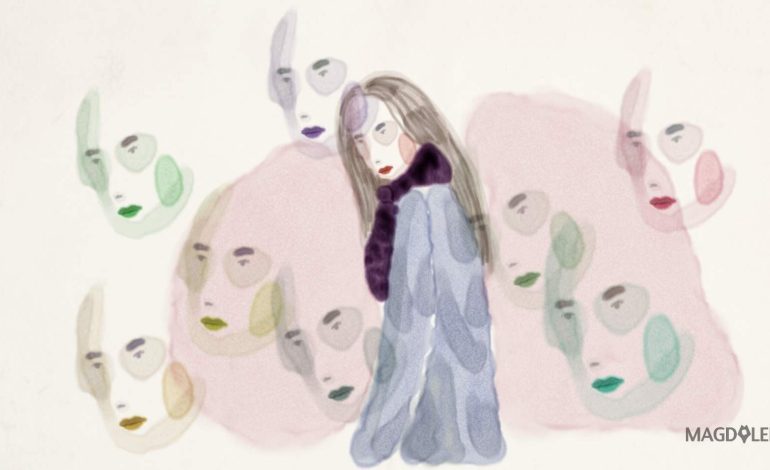Lessons from Loving Star Wars: Theatricality for a Cause

The annual celebration of Star Wars day on May 4th has reaffirmed my affinity for Star Wars movies ever since I was a kid. As a kid, I never got to watch the movies in the theatres, but I can remember watching them on VCDs. To be honest, I didn’t really understand what the movies were all about. I only saw it as a space fantasy movie and was just fascinated by all the theatrical aspects like the laser beams, the lightsaber fights and the unique characters that inhabit its universe. As I got older, however, I started to realize the virtues that the Star Wars movies possess. Understanding and loving Star Wars then became like a revelation to me:
Two years ago, precisely in December 2015, Star Wars Episode VIII: The Force Awakens was released. As it would be my first Star Wars theatrical experience, I wanted to make it theatrically worthwhile and everlasting in my memories. So I wore my Darth Vader costume to the premiere and all day long. Of course a lot of people asked to take a picture with me, but gaining public attention was never my intention in that premiere.
Some of my friends unsurprisingly mocked me for being “childish” and “weird.” Some remarked that I was too “theatrical.” Sadly they misunderstood me because I dressed up as Darth Vader for nobody but myself, and I didn’t need any approval, rejection, or judgment from anyone. If some children were happy because they took a picture and had a high-five with me, it was an honor and joy for me too. However, that day I was simply being me, a 21 years old geek who believed that by wearing a Darth Vader costume, he could somehow turn his first Star Wars theatrical experience into a satisfying and unforgettable moment.
After the movie premiere I wore my Darth Vader costume to a tobacco control rally that I held with my friends in Youth Movement for FCTC (the UN Framework Convention on Tobacco Control. Just like the Star Wars movie premiere, my costume successfully attracted crowds of people to support our cause. The Jakarta Post ran a picture of the rally with the picture of Darth Vader holding his right thumb up while holding an FCTC rally banner. The title says “Death Star.”
The thing that made me love Star Wars movies to begin with is its theatricality. All of its costumes and special effects are juxtaposed to effectively deliver epic tales about a fight of good versus evil. A rebellious princess who didn’t wait to be saved and who bravely embarked on a mission to deliver a message to save the lives of many. A family conflict in which a father reconciled with his son and redeemed his wrongs. The fight for democracy by Jedi and a resistance against the authoritarian government of Galactic Empire ruled by the evil Sith lords. These are tales with virtues like freedom, redemption and democracy, wrapped in one big space opera.
Most people would agree that theatricality plays a great role in drawing people’s interest to understand the virtues in the Star Wars movies. This fact has encouraged people to use the theatricality concepts of Star Wars to express their devotion for the characters and the stories they love. Some went beyond that and used its theatricality to deliver the message of virtues. For instance, some people were holding up Princess Leia banners with the words “A Woman’s Place is in the Resistance,” cementing the Star Wars character as the symbol of Feminism in Women’s March all across the globe. I also wore a Darth Vader costume to the Women’s March earlier this year to support and amplify the support for the causes that was being fought for in the rally.
Beyond Star Wars, some people with an affinity for other pop cultures have been inspired to use theatricality concepts for their cause, like a man from Kulonprogo who was seen wearing a Batman costume in a rally to protest various development projects in the city at the cost of farmers’ rights. And it’s not just pop culture. Some social campaigns employ theatricality drawn from other inspirations. In 2010, Greenpeace activists wore orangutan costumes in a rally against Nestlé and its ties to companies that were destroying forests. Theatricality can be effective as a satirical expression to protest certain public figures, like the Donald Trump mask I wore to the World Press Freedom Day celebration held by UNESCO earlier this month, a reference to the US President’s well-known disdain for media that are critical of him.
Some may not like theatricality in rallies and consider it as a joke. Some may think that theatricality is only relatable to some parts of society, like younger audiences and pop culture geeks. Nevertheless, the costumes, installation arts and other theatricality materials in many rallies have brought joy and passion in the people who participated in them. They have drawn support for the causes and, at the least, got the events covered in the news. Moreover, theatricality has the potential to revamp campaign methods and promote good cause through popular symbols and tales.
We are living in a bitter world in which fear and hate dominate the reality of our society. We might even find ourselves losing our optimism when the facts are only pointing at the doom and gloom. A little touch of theatricality will encourage us to find real hopes amidst fantasy. By embracing theatricality in achieving our good cause, we will be reminded that even in our darkest moments, we can transform our fears into hopes greater than our favorite fairy tale heroes.
Margianta Surahman Juhanda Dinata is an International Relations graduate from Paramadina University. Aside from being a sucker for movies and free stuff, he’s been engaged in activities related to tobacco-control and human rights issues, particularly political economic issues.






















